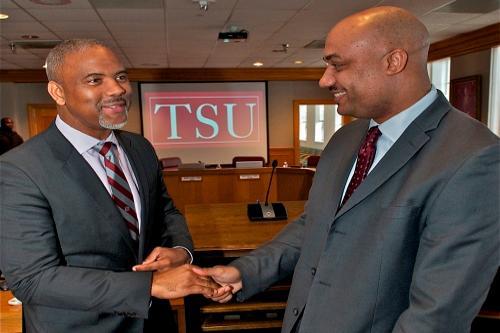Texas Southern UniversityŌĆÖs athletic director has been named in a sexual assault lawsuit filed in Houston, raising serious allegations against the prominent figure within the universityŌĆÖs sports program. The lawsuit, which has drawn significant attention, details claims that have prompted an internal investigation and widespread discussion within the collegiate athletic community. This developing story highlights ongoing concerns about conduct and accountability in college sports administration.
Texas Southern University Faces Legal and Ethical Challenges Amid Lawsuit
The controversy surrounding Texas Southern University’s athletics has escalated as the school’s Athletic Director faces serious allegations filed in HoustonŌĆÖs judicial system. The lawsuit accuses the director of sexual assault, igniting widespread concern over the institution’s commitment to safe and ethical leadership within its sports programs. University officials have remained largely silent, fueling speculation about possible internal investigations and the impacts on the university’s reputation.
In response to these allegations, stakeholders and advocacy groups have outlined several key demands for transparency and accountability, including:
- Immediate suspension of the Athletic Director pending investigation.
- A formal and independent investigation into the universitiesŌĆÖ handling of past complaints.
- Comprehensive measures to ensure student-athlete protection and prevent future incidents.
| Impact Area | Potential Consequences |
|---|---|
| University Reputation | Loss of public trust, decreased enrollment interest |
| Athletic Programs | Risk of sanctions, potential funding cuts |
| Legal & Ethical Standards | Heightened scrutiny, policy revisions |
Impact of Sexual Assault Allegations on College Athletics Programs
Sexual assault allegations against high-profile figures in college athletics often cast a long shadow over the institutions they represent. Beyond immediate legal ramifications, these accusations can trigger widespread reputational damage, eroding trust among students, alumni, and sponsors. Programs may face increased scrutiny from governing bodies such as the NCAA, leading to comprehensive investigations that can disrupt recruiting efforts and team morale. The ensuing media spotlight also magnifies internal challenges, forcing universities to balance due process with public pressure for accountability.
- Financial strains: Potential withdrawal of sponsorships and donor funding.
- Regulatory obstacles: NCAA or conference sanctions affecting competition eligibility.
- Internal turmoil: Decline in athlete performance and retention due to uncertainty.
- Community impact: Decreased attendance at games and erosion of school spirit.
The broader consequences extend into policy reform and awareness campaigns aimed at fostering safer athletic environments. Universities are increasingly investing in educational programs and comprehensive support services to proactively address sexual misconduct. However, the path to rebuilding often requires transparent communication and demonstrable cultural shifts within athletic departments. This complex dynamic underscores how sexual assault allegations can fundamentally reshape the landscape of college sports, influencing everything from leadership structures to long-term strategic priorities.
| Impact Area | Description |
|---|---|
| Legal | Lawsuits and compliance investigations |
| Financial | Loss of funding and sponsorships |
| Athlete Welfare | Increased support and educational programs |
| Reputation | Negative media exposure and public scrutiny |
Institutional Response and Policy Reforms to Prevent Future Incidents
In the wake of the lawsuit, Texas Southern University has swiftly moved to establish a robust framework aimed at safeguarding athletes and staff. The administration has announced immediate enhancements to its existing protocols, including the formation of a specialized task force dedicated to addressing allegations of sexual misconduct within the athletics department. This initiative emphasizes transparency and accountability, signaling a commitment to protect the campus community while actively preventing future incidents.
Key policy reforms introduced encompass:
- Mandatory comprehensive sexual harassment and assault training for all athletics personnel
- Strengthened background screening and continuous monitoring of athletic staff
- Implementation of anonymous reporting systems accessible to students and employees
- Clearer disciplinary procedures with strict timelines to address complaints
| Reform Measure | Expected Outcome |
|---|---|
| Specialized Task Force | Faster Investigation & Greater Transparency |
| Anonymous Reporting | Increased Reporting Confidence |
| Enhanced Training | Improved Awareness & Prevention |
Guidance for Universities Handling Sensitive Athletic Department Investigations
Universities must approach sensitive athletic department investigations with a rigorous and transparent framework to protect all parties involved while safeguarding the institution’s integrity. It is essential to establish clear protocols for timely reporting and impartial inquiry, ensuring that allegations are treated with the utmost seriousness. Confidentiality and respect for the rights of both accusers and the accused remain paramount throughout the process, maintaining a balance between privacy and accountability.
Implementing specialized training for staff and athletic personnel on recognizing and addressing misconduct can significantly reduce future incidents. Key practices include:
- Immediate suspension of implicated individuals during active investigations.
- Access to independent legal counsel for complainants and respondents.
- Regular updates to governing bodies and stakeholders without compromising confidentiality.
- Support services such as counseling and crisis intervention for affected parties.
| Step | Action | Objective |
|---|---|---|
| 1 | Initial reporting | Ensure prompt documentation of claims |
| 2 | Independent investigation | Guarantee fairness and objectivity |
| 3 | Interim measures | Protect all parties during inquiry |
| 4 | Final resolution | Deliver just outcome with institutional support |
To Conclude
As the legal proceedings move forward, the situation at Texas Southern University underscores the growing scrutiny faced by athletic programs nationwide regarding leadership conduct and campus safety. The case serves as a critical reminder of the responsibilities held by those in positions of power within collegiate sports, and how allegations of this nature can deeply impact institutions, athletes, and communities alike. Further developments will be closely watched as the university and its athletic department navigate the complexities of this serious accusation.

